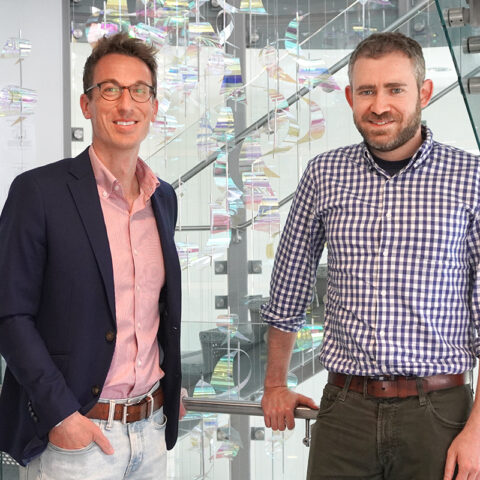Brooks faculty members appointed as affiliates to the National Bureau of Economic Research

By Sarah Louise Schupp
Brooks faculty members Michael R. Richards and Max Kapustin have been appointed affiliate scholars of the National Bureau of Economic Research (NBER).
Kapustin and Richards are two of 71 recently named affiliates representing 41 colleges and universities, with four coming from Cornell University.
The NBER is a private, nonprofit research organization dedicated to conducting and disseminating nonpartisan, cutting-edge economic research. It relies on a network of more than 1,700 affiliated scholars at North American colleges and universities to conduct research on a wide range of major economic issues.
According to the NBER, “affiliates are elected through a rigorous and competitive process.” With the assistance of leading scholars in each field, program directors review these nominations and recommend researchers for new affiliates. Notably, forty-four current or former NBER affiliates have been awarded the Nobel Prize in Economic Sciences, and 13 have chaired the President’s Council of Economic Advisers.
Michael Richards’ primary research involves health care provider responses to public policies and evolving market environments. He also has considerable interests in the structure and delivery of public insurance programs (e.g., Medicare and Medicaid) and health care workforce issues. He is a professor of public policy and serves as the director of the Sloan Program in Health Administration, overseeing the Master of Health Administration (MHA) and Executive Master of Health Administration (EMHA) degree programs.
Max Kapustin is an assistant professor of economics and public policy. He studies interventions to improve the life outcomes of disadvantaged youth and adults in U.S. cities, particularly ways to reduce their exposure to violence. Using large-scale experiments and other causal inference methods, his recent work estimates the effects of efforts such as cognitive behavioral interventions and employment for men at high risk of gun violence, mentorship for youth disengaged from school, and data-driven management changes within police departments.
